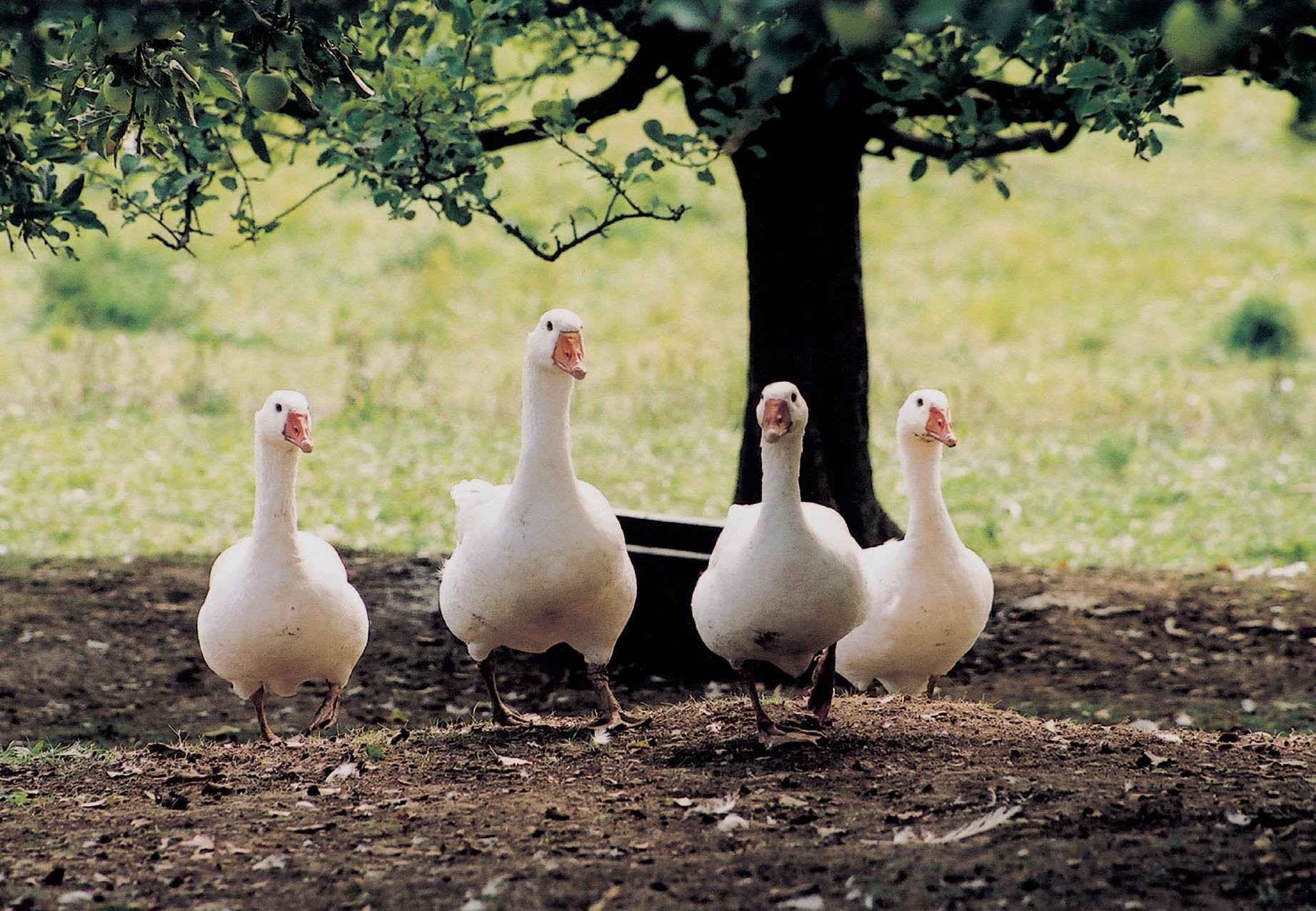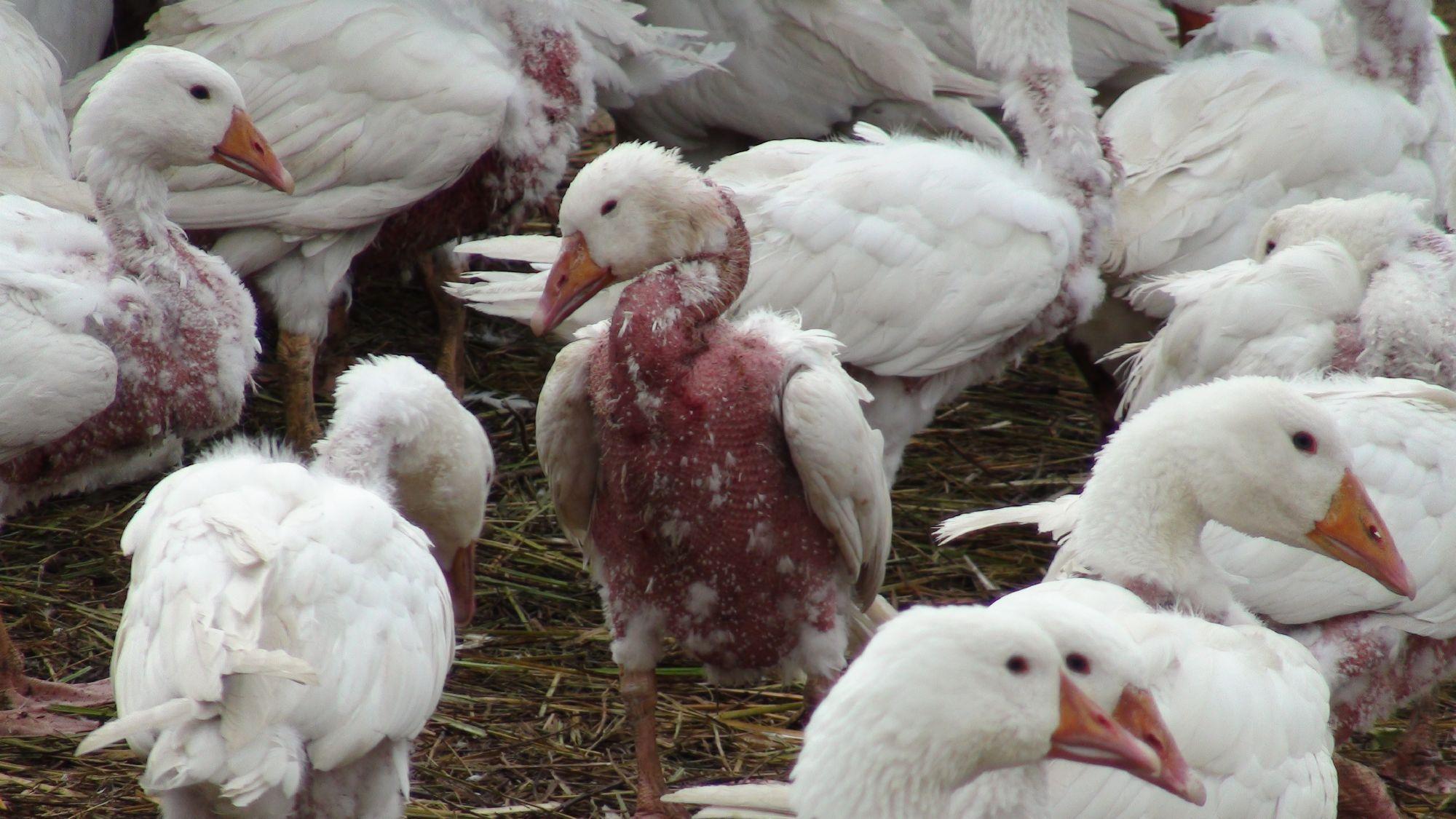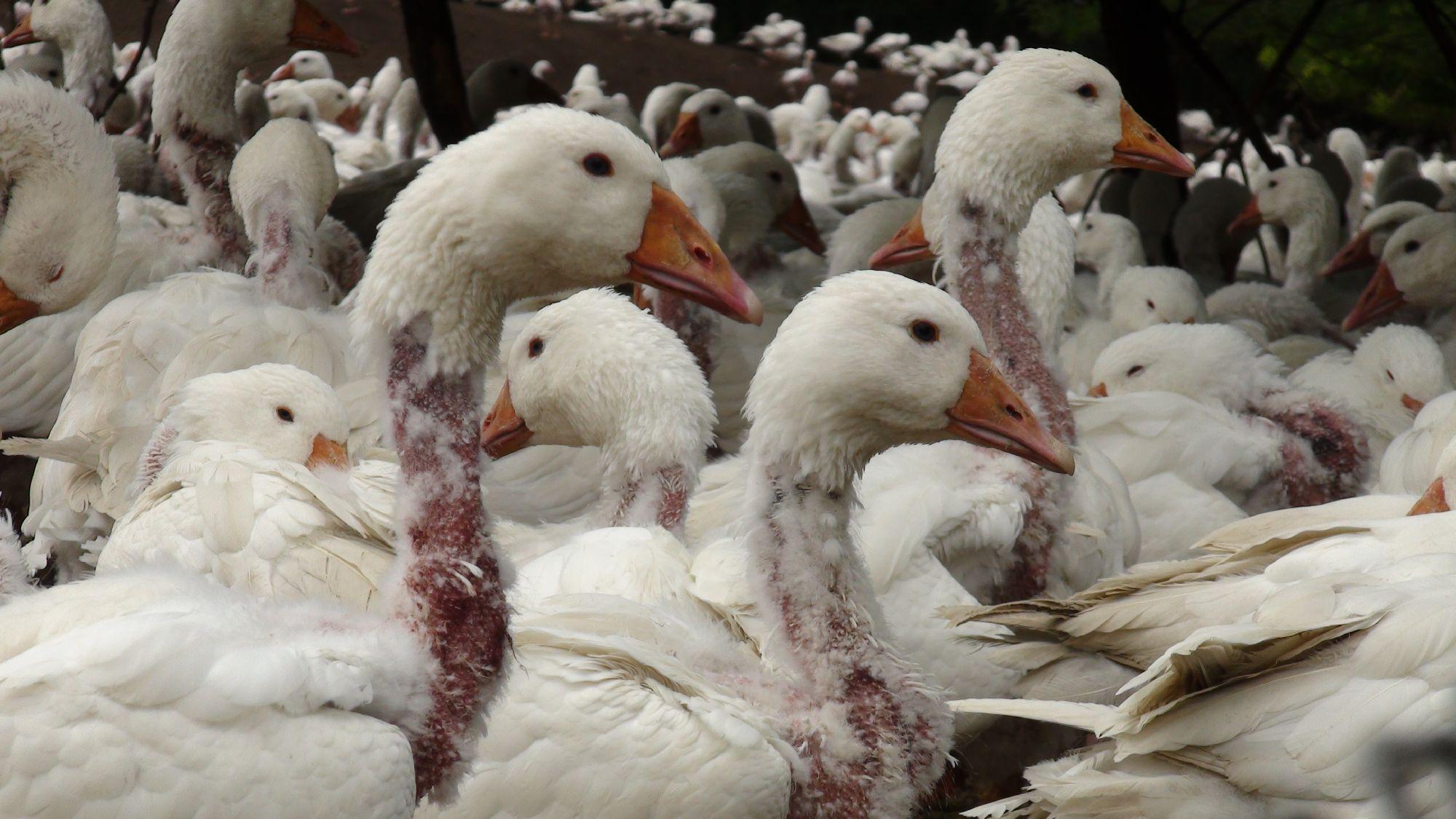
What's in your blanket or coat?
Live feather plucking harms animals
Down is a common filling material used in fashion and textiles worldwide, and is especially used by fashion brands who cater for winter or outdoor apparel. There is a dark side to this fluffy textile, with millions of bird enduring horrific suffering for their feathers.
More than 600 million geese and up to 3 billion ducks are raised and slaughtered globally on industrial farms each year. While geese and ducks are raised for their meat, two of the most intense levels of suffering they are subjected to during their lives include the cruel practices of live feather plucking for their down and force-feeding for foie gras.
Down Feathers
The term down refers to the soft layer of fine, small feathers closest to a bird’s body. Down feathers help insulate against heat loss and add buoyancy in the water for aquatic birds like geese and ducks. Their lightness and heat trapping ability is what makes down a desirable material to use in products such as coats, bedding (duvets, comforters, and blankets), pillows, and sleeping bags.
Producers and suppliers of down will say that it is a natural material sourced from geese and ducks after they are slaughtered for meat production, therefore the down and feathers are simply valuable by-products of the duck and goose meat industry. However, this is not always the case. In addition, companies will claim they do not accept down from live-plucked or force-fed animals, yet evidence to back these claims is often missing.

The aim of live-plucking is to gain the maximum amount of feathers and down from the live animal. The animals (predominately geese) suffer dreadfully while their feathers and down are torn out, as workers pluck the animals to produce the most expensive and high quality down. Down from repeatedly plucked 'parent animals' in particular is very popular and typically used for premium products.
The term 'parent animals' refers to animals used solely for the production of offspring, which are then used in the meat industry. Parent animals are at high risk of live-plucking because they are kept for 4 to 5 years and can be subject to live-plucking more frequently than animals kept for meat. Sadly, parent geese can be plucked up to 16 times during their lifetime.
Due to the painful plucking, the animals are often injured, with open wounds occurring whilst broken wings are often a consequence of rough handling. Wounds are then stitched without using anything to dull or numb the pain. Unsurprisingly, birds show signs of fear and distress after being plucked.

With brands still choosing to use down in their products, FOUR PAWS calls on them to provide the highest possible guarantees that the cruel practices of live-plucking and force-feeding are truly avoided.
This is where full supply chain traceability (from parent farm to product) with strong safeguards is imperative. Annual unannounced audits are needed to ensure that claims of farms, slaughterhouses, and washing facilities that participate in a cruelty-free supply chain are transparent and reliable.
To ensure the credibility of animal welfare claims, a large majority of the farms, if not all of them, need to be inspected annually and ideally via surprise or unannounced inspections. The keeping conditions of animals should be inspected, whether they are healthy, have outdoor space, proper flooring, food and water or not.
What can consumers do?
When buying down jackets or pillows you should always check very carefully where the down comes from. Of course, the best way to avoid animal cruelty is to do without animal products altogether. These days there are excellent plant-based and synthetic alternatives – you’ll hardly notice any difference in comfort levels compared to down.
However, if consumers still want to use down products, then they should shop with care and avoid brands that cannot guarantee that the down supplied in their products was fully controlled and audited under the strictest animal welfare and traceability standards available, such as the Global Traceable Down Standard (TDS) and the Responsible Down Standard (RDS).
As long as geese and ducks are raised for meat and their down is used, FOUR PAWS will push to ensure that they have a life free of pain and suffering and a life where their essential needs are met. This is why FOUR PAWS calls on brands and suppliers to trace their full down supply chain in order to provide the highest possible guarantees that the cruel practices of live-plucking and force-feeding are truly avoided.

